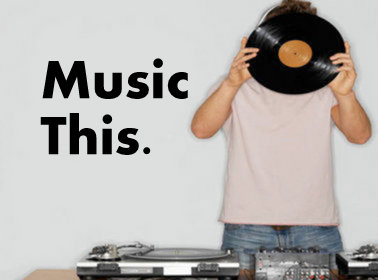- Spyware be installed on people's computers so downloads can be better regulated or restricted
- Internet providers utilize filtering technology to regulate the spread of copyrighted material
- And last but not least... Continue using agencies to track down illegal downloaders
Well while the tactics may seem startling... the overall approach is nothing short of stale. You see, what the RIAA has failed to realize is that this issue goes far beyond just politics and economics.
You see before the internet, the music industry was completely limited to how many albums it could press. On top of that, all of those clunky vinyls, tapes and CD's needed to be shipped out in order for the consumer to purchase it, let alone enjoy it. These production costs add up, so the producer assesses how many consumers want the product given the market demand and only produces enough to satisfy that market. This way, they can prevent unnecessary production, and ultimately, unnecessary spending. And that's scarcity in a nutshell.
However, when you look at our current potential -with the internet and all- you realize that scarcity disappears. That is because once the MP3 is produced, the cost to make a copy of it is almost nothing. All of a sudden you find yourself with an abundance of music, and there is no limit to how much something can be produced.
I don't think we're in Kansas anymore.
On top of all that, the internet has created a cultural environment that has completely changed the way we take in media. Once upon a time, people used to fill up their piggy banks just so they could buy new albums... the focus of this sentence being "Once upon a time". You see, regardless of the legality of obtaining free music through illegal downloading, it is hard to justify paying for an album when you know the exact same thing is available everywhere else for free. This is especially the case with downloading an album from iTunes or Amazon, where you are not even getting a hard copy of the album. This brings me to my point.
One can argue all they want about the legitimacy or legality of illegal downloading. But it doesn't change the fact that we have already opened Pandora's Box. People have experienced what it is like to live in a culture with such freedom. It seems foolish to go back and throw 15 bucks for an album that you either can't actually touch or you can only upload to so many computers.
And I'm not necessarily saying that we should continue with the way things are. Far from. The music industry has failed to realize that the economic situation has in fact shifted. They, for one, obviously have to change their approach because we live in an age where the exchanging of information spreads at an unbelievable, and uncontrollable rate. And to try and control that risks limiting peoples' experiences. Rather than trying to regulate the entire internet, the RIAA and others should be focusing on adjusting their business models to fit the force that has already been unleashed.
-James




This demonstrates that open file sharing might be in the best interest of the record companies but that is not, in my view, an argument for music piracy which, by definition, is obtaining music under a model that is not open in this way. At the end of the day the record companies can choose to do what they want with the things that they own, even if it is directly harmful to their bottom line, and music pirates have no right to violate those decisions.
ReplyDelete